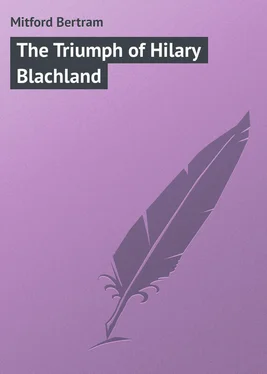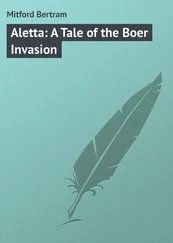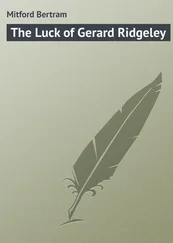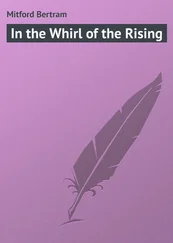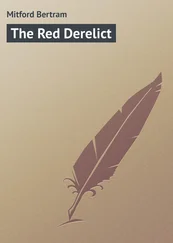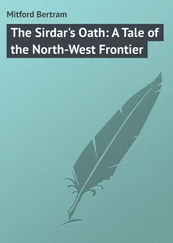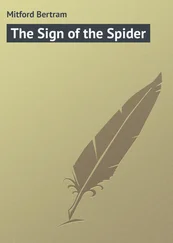Bertram Mitford - The Triumph of Hilary Blachland
Здесь есть возможность читать онлайн «Bertram Mitford - The Triumph of Hilary Blachland» — ознакомительный отрывок электронной книги совершенно бесплатно, а после прочтения отрывка купить полную версию. В некоторых случаях можно слушать аудио, скачать через торрент в формате fb2 и присутствует краткое содержание. Жанр: Прочие приключения, foreign_prose, на английском языке. Описание произведения, (предисловие) а так же отзывы посетителей доступны на портале библиотеки ЛибКат.
- Название:The Triumph of Hilary Blachland
- Автор:
- Жанр:
- Год:неизвестен
- ISBN:нет данных
- Рейтинг книги:4 / 5. Голосов: 1
-
Избранное:Добавить в избранное
- Отзывы:
-
Ваша оценка:
- 80
- 1
- 2
- 3
- 4
- 5
The Triumph of Hilary Blachland: краткое содержание, описание и аннотация
Предлагаем к чтению аннотацию, описание, краткое содержание или предисловие (зависит от того, что написал сам автор книги «The Triumph of Hilary Blachland»). Если вы не нашли необходимую информацию о книге — напишите в комментариях, мы постараемся отыскать её.
The Triumph of Hilary Blachland — читать онлайн ознакомительный отрывок
Ниже представлен текст книги, разбитый по страницам. Система сохранения места последней прочитанной страницы, позволяет с удобством читать онлайн бесплатно книгу «The Triumph of Hilary Blachland», без необходимости каждый раз заново искать на чём Вы остановились. Поставьте закладку, и сможете в любой момент перейти на страницу, на которой закончили чтение.
Интервал:
Закладка:
Not the most hardened and philosophical of the white spectators could entirely conceal the expressions of loathing and repulsion which were stamped upon each countenance as they turned away from this horrid sight. On that of Blachland it was far the most plainly marked, and seemed to afford the ferocious crowd the liveliest satisfaction.
“See there, Amakiwa,” they shouted. “Look and behold. It is not well to pry into forbidden things. Behold the King’s justice.”
And again they chorused forth volleys of sibonga , i.e. the royal praises.
Was it merely a coincidence that their looks and the significance of the remark seemed to be directed peculiarly at Blachland? He himself was not the only one who thought so.
“What do you think now, Blachland?” said Young, dryly. “Better leave that little exploration scheme you were planning strictly alone, eh?”
“Well, I believe I had,” was the answer.
And now the armed warriors clustered round the white men. Some were chatting with Christian Sybrandt as they moved upward to the great kraal, for they had insisted on forming a sort of escort for their visitors; or, as these far more resembled, their prisoners. They were in better humour now, after their late diversion, but still there were plenty who shook their assegais towards the latter, growling out threats.
And as they approached the vast enclosure, the same thought was foremost in the minds of all four. Something had gone wrong. They could only hope it was not as they suspected. They were absolutely at the mercy of a suspicious barbarian despot, the objects of the fanatical hate of his people. What that “mercy” might mean they had just had a grimly convincing object lesson.
Chapter Three.
What Happened at Bulawayo
As they entered the outer enclosure, a deep humming roar vibrated upon the air. Two regiments, fully armed, were squatted in a great crescent, facing the King’s private quarters, and were beguiling the time with a very energetic war-song – while half a dozen warriors, at intervals of space apart, were indulging in the performance of gwaza , stabbing furiously in the air, right and left, bellowing forth their deeds of “dering-do” and pantomiming how they had done them – leaping high off the ground or spinning round on one leg. The while, the great crescent of dark bodies, and particoloured shields, and fantastic headgear, swaying to the rhythmic chant; the sparkle and gleam of assegais; the entirely savage note of anticipation conveyed by nearly two thousand excited voices, constituted a spectacle as imposing as it was indisputably awe-inspiring.
“The Imbizo and Induba regiments,” said Sybrandt, with a glance at this martial array.
But with their appearance the song ceased, and the warriors composing this end of the crescent jumped up, and came crowding around, in much the same rowdy and threatening fashion which had distinguished the execution party down in the valley.
“Lay down your arms, Amakiwa!” they shouted. “ Au ! it is death to come armed within the gates of the Ruler of the World.”
“It has never been death before – not for us,” replied Sybrandt. “At the inner gate, yes – we disarm; not at the outer.”
The answer only served to redouble the uproar. Assegais were flourished in the faces of the four white men – for they had already dismounted – accompanied by blood-curdling threats, in such wise as would surely have tried the nerves of any one less seasoned. The while Sybrandt had been looking round for some one in authority.
“Greeting, Sikombo,” he cried, as his glance met that of a tall head-ringed man, who was strolling leisurely towards the racket. “These boys of thine are in high spirits,” he added good-humouredly.
The crowd parted to make way for the new arrival, as in duty bound, for he was an induna of no small importance, and related to the King by marriage.
“I see you, Klistiaan,” replied the other, extending his greeting to the rest of the party.
But even the presence of the induna could not restrain the turbulent aggressiveness of the warriors. They continued to clamour against the white men, whom they demanded should disarm here instead of at the inner gate.
To this demand, Sybrandt, who was tacitly allowed by the others to take the lead in all matters of native etiquette or diplomacy – did not deem it advisable to accede. But something in Sikombo’s face caused him to change his mind, and, having done so, the next best thing was to do it with a good grace.
“What does it matter?” he said genially. “A little way here, or a little way there.” And he stood his rifle against the fence, an example which was followed by the others. The warriors then fell back, still with muttered threats; and, accompanied by the induna, the four white men crossed the open space to the gate of the King’s stockade.
There perforce they had to wait, for the barbarian monarch of Zulu descent and tradition is, in practice, in no greater hurry to receive those who come to consult him than is the average doctor or lawyer of twentieth-century England, however eager he may be in his heart of hearts to do so, and the last of the Matabele kings was not the man to forget what was due to his exalted position.
“What does it all mean, Sybrandt?” said Blachland, as, sitting down upon the dusty ground, they lighted their pipes. “Why are the swine so infernally aggressive? What does it mean anyhow?”
“Mean?” returned Young, answering for Sybrandt, who was talking to the induna, Sikombo. “Why, it means that our people yonder will soon have to fight like blazes if they don’t want their throats cut,” – with a jerk of the hand in the direction of the newly occupied Mashunaland. “The majara are bound to force Lo Ben’s hand – if they haven’t already.”
From all sides of the great kraal the ground sloped away in gentle declivity, and the situation commanded a wide and pleasant view in the golden sunlight, and beneath the vivid blue of a cloudless subtropical sky. To the north and west the dark, rolling, bush-clad undulations beyond the Umguza River – eastward again, the plain, dotted with several small kraals, each contributing its blue smoke reek, led the eye on to the long flat-topped Intaba-’Zinduna. Down in the valley bottom – where now stands the huge straggling town, humming with life and commerce – vast cornfields, waving with plumed maize and the beer-yielding amabele ; and away southward the shining rocky ridge of the Matya’mhlope; while, dappling the plain, far and near, thousands of multi-coloured cattle – the King’s herds – completed the scene of pleasant and pastoral prosperity. In strange contrast to which the cloud of armed warriors, squatted within the gates, chanting their menacing and barbarous strophes.
Suddenly these were hushed, so suddenly indeed as to be almost startling. For other voices were raised, coming from the stockade which railed in the esibayaneni – the sanctum sanctorum . They were those of the royal “praisers” stentoriously shouting forth the king’s sibonga : —
“He comes – the Lion!” – and they roared.
“Behold him – the Bull, the black calf of Matyobane!” – and at this they bellowed.
“He is the Eagle which preys upon the world!” – here they screamed; and as each imitative shout was taken up by the armed regiments, going through every conceivable form of animal voice – the growling of leopards, the hissing of serpents, even to the sonorous croak of the bull-frog – the result was indescribably terrific and deafening. Then it ceased as suddenly as the war-song had ceased.
The King had appeared. Advancing a few steps from the gateway, he paused and stood surveying the gathering. Then, cleaving the silence in thunder tones, there volleyed forth from every throat the salute royal —
Читать дальшеИнтервал:
Закладка:
Похожие книги на «The Triumph of Hilary Blachland»
Представляем Вашему вниманию похожие книги на «The Triumph of Hilary Blachland» списком для выбора. Мы отобрали схожую по названию и смыслу литературу в надежде предоставить читателям больше вариантов отыскать новые, интересные, ещё непрочитанные произведения.
Обсуждение, отзывы о книге «The Triumph of Hilary Blachland» и просто собственные мнения читателей. Оставьте ваши комментарии, напишите, что Вы думаете о произведении, его смысле или главных героях. Укажите что конкретно понравилось, а что нет, и почему Вы так считаете.
